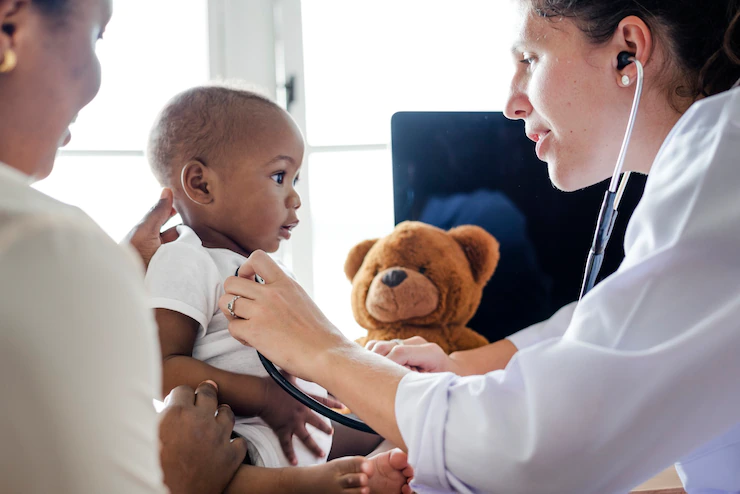Introduction:
Maternal and child health clinics play a vital role in promoting the well-being of women and children in South Africa. These clinics provide a range of essential services and support, focusing on prenatal care, postnatal care, child health, and immunizations. They serve as a crucial entry point for accessing healthcare services, especially for women and children from disadvantaged backgrounds. This article explores the services and support provided by maternal and child health clinics in South Africa and highlights their importance in ensuring the health and development of mothers and children.
Prenatal Care Services:
- Antenatal Check-ups: Maternal and child health clinics offer regular antenatal check-ups to monitor the health of pregnant women. These check-ups include various assessments such as blood pressure monitoring, weight measurement, urine tests, and monitoring fetal growth. Clinicians also provide advice on nutrition, exercise, and general prenatal care.
- Laboratory Tests: Maternal and child health clinics facilitate the necessary laboratory tests during pregnancy, including blood tests, screening for infections, and prenatal screenings such as ultrasounds and genetic screenings. These tests help identify any potential risks or complications, enabling timely interventions and appropriate management.
- Health Education and Counseling: Clinics provide health education and counseling sessions to pregnant women and their families. These sessions cover topics such as breastfeeding, newborn care, family planning, contraception, and prevention of mother-to-child transmission of HIV/AIDS. Health educators and counselors offer guidance, address concerns, and promote healthy behaviors during pregnancy.
Postnatal Care Services:
- Postpartum Check-ups: Maternal and child health clinics schedule postpartum check-ups for new mothers to monitor their recovery and address any physical or emotional concerns. These check-ups may include assessments of wound healing, breastfeeding support, mental health screening, and family planning discussions.
- Immunizations: Clinics play a critical role in providing immunizations for newborns and infants. They administer vaccines according to the national immunization schedule to protect children against diseases such as measles, polio, tuberculosis, and hepatitis B. Immunization records are maintained to ensure children receive the required vaccinations on time.
- Infant Growth and Development Monitoring: Maternal and child health clinics monitor the growth and development of infants through regular check-ups. These assessments include weight and height measurements, milestone evaluations, and screenings for developmental delays or concerns. Clinicians provide guidance on infant nutrition, stimulation, and early childhood development.
Additional Support Services:
- Family Planning Services: Maternal and child health clinics offer family planning services, including counseling and access to contraception. They provide information on different contraceptive methods, their effectiveness, and potential side effects. These services support women in making informed decisions about their reproductive health and spacing pregnancies.
- Support for High-Risk Pregnancies: Maternal and child health clinics play a crucial role in identifying and managing high-risk pregnancies. They work closely with healthcare providers to ensure proper monitoring, specialized care, and appropriate referrals for women with medical conditions or complications during pregnancy.
- Community Outreach Programs: Many maternal and child health clinics engage in community outreach programs to reach underserved populations. These programs provide health education, screenings, immunizations, and support to women and children who may face barriers in accessing healthcare services.
Conclusion:
Maternal and child health clinics in South Africa offer a range of services and support to promote the health and well-being of women and children. Through prenatal care, postnatal care, immunizations, family planning, and additional support services, these clinics play a crucial role in ensuring healthy pregnancies, safe deliveries, and optimal child development. They serve as a cornerstone of primary healthcare, providing accessible and comprehensive care to communities, particularly those facing socioeconomic challenges. By continuing to invest in and strengthen these clinics, South Africa can improve maternal and child health outcomes and contribute to the overall well-being of its population.










